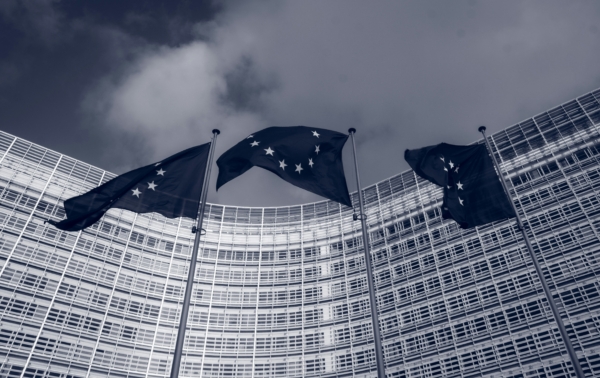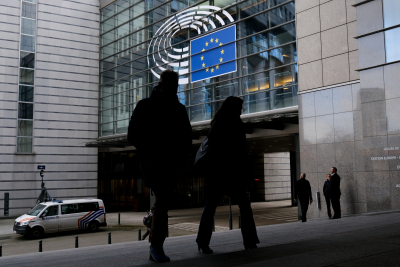Call for tenders
Application deadline: 07 September 2018
Purpose of assignment
Deliver a study of the Eurogroup as an institution – answering questions such as who participates, where workstreams and documents are prepared and contributed from, analysing in detail any applicable policies, codes of conduct, and other guidelines regarding conflicts of interest, publication of agendas and Eurogroup outcomes.
The study should be structured into the four parts “independence”, “transparency”, “accountability”, and “integrity”, and should be based on an adapted version of Transparency International National Integrity System (NIS) methodology, including desk research on all applicable treaties, policies, and working methods, as well as in-depth structured interviews with most institutions involved in the Eurogroup, such as the International Monetary Fund, European Commission, Eurogroup Working Group Secretariat, General Secretariat of the Council of the EU, the Eurogroup Presidency and its team, former Eurogroup officials, assorted national finance ministry officials and academics. The study will form the fourth publication in the EU economic governance series.
This shall serve as a basis for a report that TI EU will use as part of its advocacy work aimed at ensuring greater transparency and accountability in the Eurogroup in particular, and in the governance of the euro and Economic and Monetary Union (EMU) in particular.
Background
Transparency International EU (TI EU) is part of the global civil society organisation leading the fight against corruption and promoting good governance. TI EU is currently coordinating a network of civil society organisations working on the transparency and accountability of the Eurozone. It is leading a watchdog network at EU level with the objective of ensuring that the current debate on deepening EMU will lead to increased accountability for decision-making in euro governance, in particular with a clear distribution of competences that will allow citizens and their representatives to hold decision makers to account.
The euro crisis forced a series of hurried reforms and created ad-hoc institutions. There is a blurred division of competences between Member States which results in budget rules that are too complicated even for hardened experts. This muddies the decision-making process and confuses where the accountability for decisions lies.
Project overview and objectives
Transparency International is publishing a series of studies looking at the transparency of the institutions which govern the Euro. These studies look at the institutions’ independence, how proactively they publish information as well as access to document policies, integrity mechanisms (such as whistleblower protections, codes of conduct for staff, revolving door policies), and include in-depth case studies of recent decision-making procedures. We will organise report launch events and roundtable discussions with fellow civil society organisations and other actors to narrow down the conclusions of the studies into concrete recommendations.
The project also brings together an informal network of civil society, academia and think tanks working on the reform of the EU’s economic governance.
The key objectives of the report are to:
- Quantitatively analyse media reports about the Eurogrup over time.
- Gather all written information about the constitutional set-up of the Eurogroup in one place, providing a thorough and accurate description of this informal body.
- Assessing to what extent the Eurogroup takes decisions, legally and politically speaking; and to what extent the Eurogroup can be held accountable for these decisions, both in theory and in practice.
- Describe, in detail, the Eurogroup’s role in a variety of policy processes, including ESM programmes, the European Semester and the setting of national fiscal policy under the Stability and Growth Pact, and its relationship with other EU economic governance institutions, in particular the ECB.
- Make recommendations how transparency, accountability, and integrity of the Eurogroup, its members, work streams, and publication of documents can be improved.
- Embed this analysis in the broader debate on deepening of EMU.
Scope of the research
Given that the Eurogroup is an “informal” institution, defining the scope of the research will present inherent challenges. Interviews, and substantive assessments should be conducted in close coordination with the Transparency International’s project officer, the Research and Advocacy Coordinator on the Eurozone.
The draft study will further undergo feedback exercises with some of the institutions participating in the Eurogroup, as well as a senior advisory group of the Eurozone project managed by TI, and by TI staff.
It is expected that the researcher will work closely with TI EU to develop the most appropriate research framework and methodology to ensure that the key research questions are answered.
Scope of services and outputs
The primary tasks of and outputs to be delivered by the researcher will be:
- Develop a research methodology and select the institutions and individuals to be interviewed in the context of the study, in consultation with TI EU.
- Deliver a high quality study of the Eurogroup based on the agreed methodology (approximately 40-60 pages), including substantive recommendations for reforms the Eurogroup and its preparatory and participating bodies could undertake to improve transparency, accountability, and integrity.
Timeline
The draft should be ready within 2018. The timeline is indicative and the exact timing will be agreed with the researcher at the start of work. In conducting his/her work, s/he will report to the TI EU Research and Advocacy Coordinator in charge of this project.
| Tasks | Timeframe |
| Appointment of a researcher and signing of contract
|
September 2018 |
| Methodology development and company selection
|
September 2018 |
| Data collection and research
|
September-October 2018 |
| Interviews and drafting period
|
October-November 2018 |
Tendering process
Tenders should be submitted, along with a recent sample of comparable written work and the CVs of the researcher(s), to leo.axt@transparency.org by 7 September 2018.
Offers up to €16,000 will be considered.
Tenders will be reviewed by TI EU according to the following criteria:
- Experience and track record of researcher(s), in particular with a view to EU economic governance, political accountability and the governance of integrity risks in public or private institutions
- Independence
- Value for money
- Quality of offer







